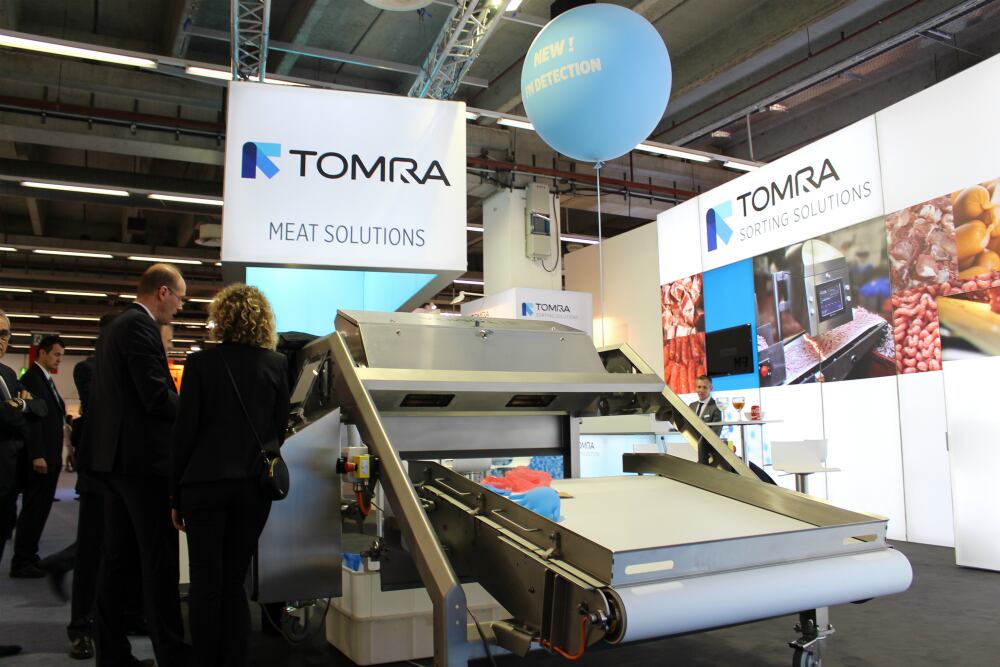Tomra is a Norway-based manufacturer of sorting machinery, while ViskoTeepak describes itself as a “world leader” in the production of fibrous, cellulose and plastic meat casing solutions.
Tomra and ViskoTeepak’s new machine is fully automated and detects pieces of casing in sausage products and can also identify foreign matter contamination, such as cardboard and wood. Through a laser scanning system, the machine then sorts the good products from the bad, using a separate conveyor belt to transport the defect products to a sorting bin.
To detect issues with sausage casing – such as too much plastic on the product – ViskoTeepak developed technology that is incorporated into meat casings, helping producers ensure skins are removed.
Tomra and ViskoTeepak in numbers:
Turnover: €500m; €160m
Employees: 2,400; 1,000
Founded: 1972; 1952
The Wienie-Pak D-Tech technology is completely transparent in the casing of the meat, but is detected by Tomra’s new Genius optical sorting machine.
The innovation can be used to produce skinless sausage products, such as frankfurters, hot dogs and mini-salamis.
“Combining Tomra’s Genius sorted with ViskoTeepak’s D-Tech development doesn’t only allow for casing detection but it is also possible to sort on size and other quality deviations such as colour,” said Bjorn Thumas, director of business development at Tomra’s Sorting Foods division.
“The requirements in food safety will continue to increase. Tomra can now, together with ViskoTeepak, provide the most complete range of cellulose casing detection to help reduce the exposure of manufacturers. We take these concerns seriously and, by doing so, provide support for a long-term sustainable business.”
Thumas explained that if the plastic sausage casing was too large, there had been instances of consumers choking on the large pieces of plastic. As well as potentially protecting human health, the machine can help prevent a product recall, protecting businesses from financial and reputational damage.

“The biggest advantage [of the D-Tech] is the fact that this casing allows for full automation of the detection and eventually the separation process with the correct sorting equipment,” said Mark Vrijsen, business line director at ViskoTeepak.
Another benefit of the new technology is that its sorting automation reduces the need for manpower, saving salary costs.
Before its launch at IFFA, the technology was tested at a research and development facility of a major Germany salami snack producer. The results were so good that the meat company decided to use to the
D-Tech casing with Tomra’s sorting technology, said Thumas.
